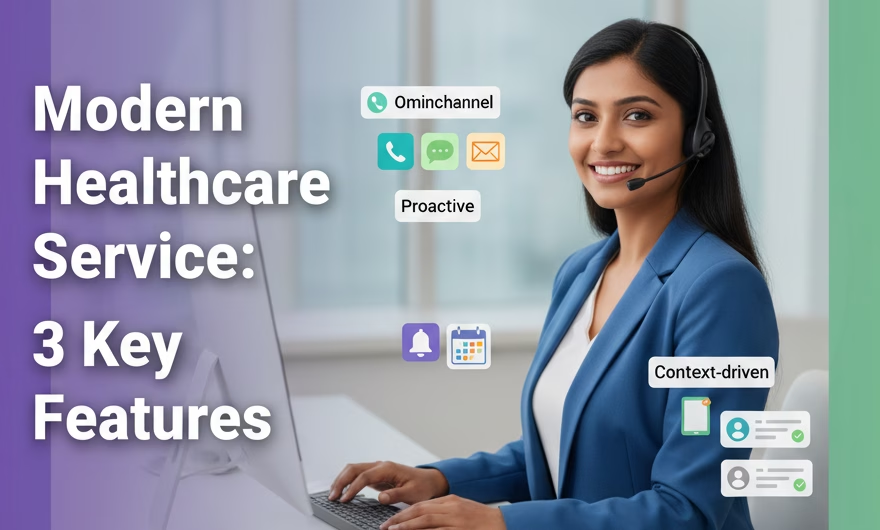Choosing the right cloud contact center solution can feel overwhelming, as so many providers now promise the best mix of features, pricing, and scalability. While it’s tempting to go for the most affordable or trendiest option, the true value of a contact center platform lies in how well it aligns with your business today and where you see it going tomorrow.
Let’s say you run a lean setup now but anticipate expansion within the next year. If you choose a low-cost platform that doesn’t scale well, you may find yourself facing unexpected costs or limitations down the line. That’s why it’s not just about picking what fits now but ensuring your choice grows with you.
To help you evaluate your options wisely, here’s a curated set of key considerations before you commit to a cloud contact center solution.
1. Telecom Compliance and Number Ownership
When evaluating cloud contact center solutions, you need to understand how virtual numbers are provisioned.
Will the service provider arrange them, or will you need to bring in a separate VoIP provider? Once the number is assigned, who actually owns it – you or the vendor?
This often-overlooked detail can lead to complications later, especially if you decide to switch providers and face challenges transferring ownership. That is why you should always ask upfront about migration policies and potential fees that could arise during transitions.
2. Must-Have Features Built for Modern Customers
Your customers aren’t just calling anymore. They may prefer to chat, tweet, text, and message across multiple platforms.
Does the platform you’re considering allow you to be present wherever your customers are looking for you?
Omnichannel capability is no longer optional. Additionally, supervisors should be able to track performance and monitor activity in real-time from anywhere. This calls for intelligent automation that removes repetitive tasks from agents’ plates and allows integrations with virtual assistants or bots.
3. Pricing Structure
Many cloud contact center platforms offer base-level packages that seem affordable, but come with separate costs for voice usage, API access, or other advanced features. You need to clarify whether you pay per use, per user, or via bundled plans.
If your business relies heavily on inbound or outbound calling, you can’t afford a system that halts operations due to usage caps. This is where checking whether the recharge process is smooth, what the additional charges are, and how you’ll be notified in case of nearing limits, helps.
4. Data Compliance and Regional Storage Policies
With data privacy gaining attention globally, businesses must ensure their customer data is protected. It’s wise to ask where your data is stored and whether it complies with your country’s regulations. Some regions mandate that sensitive information remains stored within national borders, which your provider must comply with.
5. Security & Room for Growth
Security in cloud environments can be a concern when customer data is involved.
Is the software designed to protect customer details from being saved or copied on agents’ devices?
Features like screen recording restrictions or disabling downloads are useful safeguards. You can also consider how the platform scales or whether it supports your long-term plans of expanding teams, adding new support channels, or integrating new tools.
Your cloud solution should evolve as your business does, without compromising on security or performance.
6. Integration with Existing Systems
If your CRM or helpdesk tool doesn’t integrate well with the contact center software, your agents will spend unnecessary time switching tabs or duplicating data.
Therefore, you must check if the platform offers built-in connectors for your existing tools or if you’ll need to bring in your tech team to enable integration. You can also ask about how long the setup might take and whether the process is complex.
A hassle-free, quick integration can be a big win in time-sensitive transitions.
7. Know the Usage Limits
Cloud platforms often come with limits that aren’t obvious at first glance. These include API rate limits, call volume caps, or restrictions on IVR levels, and queue setups. You must understand where these thresholds lie.
If your business requires additional customisation in the form of more call dispositions or extra queues, ask the platform provider if those can be added without delays or extra dependencies. It’s always better to work with a platform that offers flexibility, especially when you’re planning to scale.
8. Licensing Flexibility
As your contact center grows, you may need to increase user licenses, add more support channels, or enable new third-party apps. Ensure your provider offers flexible licensing that doesn’t slow you down or cost a fortune. The ideal solution lets you scale access and capabilities without locking you into rigid plans.
Choosing the right cloud contact center is about future-proofing your customer experience. Businesses can adapt faster, personalise interactions at scale, and turn every conversation into an opportunity to impress with a flexible, work-from-anywhere solution in place. When your technology keeps pace with your ambition, delivering standout service becomes second nature.




